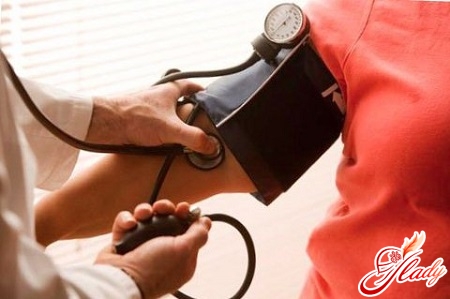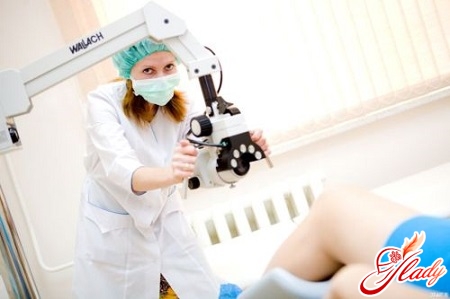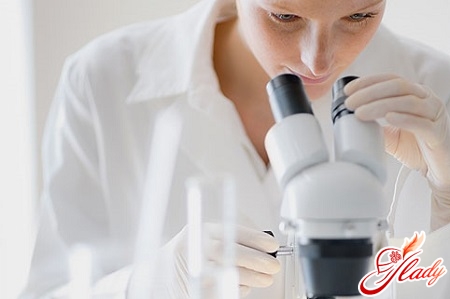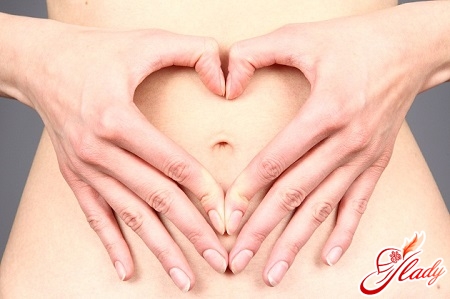
Menopause in women is absolutely normal andA natural phenomenon that expects every woman over 45 years of age. Experiencing this would be very stupid. But to prepare for some changes in the body should be. This period requires special attention to the reproductive system of the body. You need to be prepared for the fact that you may have to undergo a special comprehensive examination at least once a year. Modern medicine makes it possible to determine when exactly the menopause will come, and also to reveal the predisposition to any diseases. What is menopause and what are its symptoms? What is a climacteric syndrome and how is it manifested?
The first symptoms of menopause in women
What kind of first calls will come fromapproaching menopause? To say this is difficult enough, because the symptoms of menopause in all are different, it all depends on the characteristics of the body. But there are also such symptoms, which often accompany climacteric syndrome. Such symptoms include violations of the menstrual cycle, when the monthly come when they like; hot flashes, an increase in body weight, frequent insomnia. If you are over 45 years old and these symptoms have been observed more than once, do not panic. If you have some of these symptoms, you should not make a diagnosis yourself, but if the entire syndrome is typical for menopause, it's been around for a long time, it only means that you have entered the initial stage of the climacteric period. This syndrome should not cause you stress and cause a panic. But there are some points about which every woman should know. So, among the main signs of a climacteric syndrome can be identified somewhat. 
Violation of menstruation during menopause
As you know, menopause is the period whenthe activity of the sexual glands is extinguished. The menstrual cycle is first broken, and then completely stopped. Finally menopause occurs in people older than 50 years. Loss of reproductive function of the body and restructuring in the body occur with the onset of perimenopause. By perimenopause is meant the period from the very beginning of the attenuation of the work and activity of the ovaries to the complete cessation of the menstrual cycle. This period can last as 2 years, and 8 years. The second phase of menopause is considered to be menopause. By menopause is meant the period when the last uterine bleeding was observed, which is caused by the hormonal function of the ovaries. After menopause, postmenopause follows. Postmenopausal refers to the period from the last monthly and to the complete cessation of ovarian activity. This phase precedes the onset of old age. The duration of this period can last from 6 to 8 years. One of the main signs of the onset of menopause is the irregularity of the menstrual cycle, which each time acquires a character that is growing. An irregular menstrual cycle can be characterized by the number of monthly discharges, as well as different intervals between them. The intervals between menstrual cycles can be reduced to 21 days, and may, conversely, increase to 35 days. If you observe such violations, then this is the reason to call a doctor who will put an accurate diagnosis and exclude the presence of any disease. Unfavorable environmental conditions, poor nutrition, smoking and alcoholism can serve as an excuse for early menopause. If a woman used hormonal drugs, menopause and climacteric syndrome may occur later. This affects the hormonal composition of the drugs used. The beginning of menopause is accompanied by menopausal syndrome, which is characterized by the appearance of some problems with health and well-being. All this is directly related to hormonal changes in the body. 
Tides as a symptom of menopause
One of the most typical symptoms of approaching orthe onset of menopause are considered hot flashes. They express themselves in the sudden occurrence of a feeling of intense heat in the upper part of the body. Sometimes during hot flashes, there is redness in the chest, face and neck. Tides are characterized by attacks of sweating. Literally for one minute the skin from the dry can become sharply wet, the external temperature of the body does not change at the same time. In general, the condition during the tide is very unpleasant and can cause stress. After that, there is weakness, rapid heartbeat, decreased ability to work, panic and other unpleasant consequences. Typically, the duration of one tide is no more than 1 minute. But this time is much more than enough to get serious stress. In some women, tides occur very rarely, and for some, up to 50-60 tides occur in a single day. There are often cases when, as a result of the tide, clothes get very wet and change of linen and clothes is required. It is desirable to dress in layers, so that at any time you can remove one of the layers. Tides have no system, they arise chaotically and are very tiring and exhausting for the female body. This syndrome can even cause a loss of consciousness, which continues, usually within a few seconds. Tides are also characterized by a disturbance of sleep, which provokes fatigue and lack of sleep. It happened, when this symptom served as the main cause of the development of cardiovascular diseases. What is the reason for such an unpleasant syndrome? And the main reason lies in the fact that the pituitary gland reacts to the drop in the level of estrogen, as a result, there is a hormonal imbalance in the body. The pituitary reaction is a significant increase in the production of LH (luteinizing hormone). This hormone, as a result of a sudden release, causes a sharp increase in body temperature, which is called the tide. According to statistics, more than 50% of all women suffer from hot flashes. By the way, the lean tend to have more flushes than the full ones.
Insomnia as signs of menopause
Do not confuse each other with persistent sweating,which is due to the increased function of the thyroid gland, with intermittent sweating during menopause. One of the symptoms of menopause, which accompanies hot flashes, is sweating. The attack of sweating can be very strong, up to the point that the forehead can become sharply covered with droplets of sweat, which begin to flow down the temples. The body quickly becomes wet, wet spots may appear on the clothing. In the night time, sweating can be very strong, which will even change the bed linen and pillow. Despite all the unpleasant moments, sweating is still considered a natural physiological process, which is so necessary for regulating the internal temperature and for removing toxins from the body. Sweating during the menopause performs the same function as in the normal state. Very often during menopause, women experience insomnia. It can be caused by both tides and simply a stressful condition. In the event that for several days you can not sleep properly at night, you can seek help from a doctor who prescribes medications that help you sleep. 
Headaches with climacteric syndrome
One of the first symptoms associated withmenopause, are permanent headaches. Such pains can simply be a reaction of the body to depression, which can be caused by different manifestations during menopause. This pain is also called pain of tension. Headaches arise as a result of negative emotions, which can cause tension of facial muscles. In addition, headaches can result from the inability to relax. Such pains, as a rule, are dull and monotonous. The headache can be different. A sudden attack can occur, as a result of which the forehead hurts and whiskey is very hard. Sometimes such pains are accompanied by darkening in the eyes, trembling and cold in the hands. Such manifestations are typical for migraine, which occurs as a result of the expansion and contraction of the vessels of the brain. Pain in the head can be a sign of hypertension. In this case, there is a heaviness in the occipital part of the head, bags are formed under the eyes, and the face swells. It is worth remembering that pain in the head can be caused by some products that contain nitrites or organic compounds. The cause of headaches can be and drugs. Among such drugs may be drugs containing hormones (hydrocortisone, prednisolone), various cardiac agents (verapamil, nitroglycerin and others), blood pressure lowering agents (reserpine, raunatin, etc.), drugs for ulcer diseases (cimetidine, ranitidine ).
Pain in the heart area as signs of menopause in women
One of the most dangerous and quite frequentheart disease is ischemic disease. It arises as a result of the damage to the blood vessels that feed the myocardium (cardiac muscle). The development of atherosclerosis can lead to the fact that the walls of the vessels become denser, the diameter of the heart arteries will decrease, and as a result of all this there will be a decrease in the flow of blood to the myocardium. The heart will begin to suffer from a lack of oxygen, which causes severe heart pain. Statistics say that every ninth woman over 45 years old suffers from one of the diseases of the cardiovascular system. Half of them suffer from ischemic heart disease. Climax in women very often causes dizziness, shortness of breath and lack of air. Sometimes it manifests itself in the form of seizures, which are accompanied by noise in the ears, imbalance, sometimes nausea and even vomiting. 
Increased pressure as a symptom of climacteric syndrome
Very often menopause in women is accompanied byjumps of arterial pressure, more often by its increase. The most important signs of high blood pressure can be nausea, headache and dizziness. The increase in pressure may be due to the fact that the body simply has to adapt to all sorts of external influences, for example, physical exertion. During physical exertion, there is a need for increased supply of the body with blood, resulting in increased arterial blood pressure. It often happens that the pressure rises very sharply, as a result of which a situation arises that requires the adoption of necessary and urgent measures. There may be sharp headaches, weakness, pain in the thoracic region, dizziness and other symptoms. Sometimes the blood pressure rises so much that you need urgent medical help.
Other signs of climacteric syndrome
During menopause, suchmanifestations like numbness of the limbs (most often the fingers) or tingling in the limbs. Very often at night, the middle, ring finger and index finger become numb. In the morning, there is a pain when trying to bend the brush, after a while this pain passes. Many women during the menopause characterized by a sharp change of mood. For unexplained reasons, irritability, anxiety, tension, fatigue may appear. Many women report that they have some unpleasant sensation in the throat, like a ball, which is very difficult to swallow. Such a syndrome is very common in the menopause, but in order to exclude thyroid disease, it is necessary to address this problem to the doctor. Menopause in women can cause depression. This state is very often accompanied by pessimism, a depressed mood, irritability, depression. Women are much more likely to suffer from depression than men. Climacteric syndrome can only provoke the emergence of such a condition. Depression can lead to stressful situations, hot flashes during menopause, anxiety and others. One of the symptoms of menopause is dryness and burning in the vagina. This is due to the fact that during the menopause the female body forms much less sex hormones, as a result of which the mucous membrane of the vagina becomes much thinner, loses its normal lubrication and becomes dry. The result of such processes can be itching and burning. Sexual intercourse in this condition becomes very painful. 
What symptoms of menopause still exist
During the menopause, a decrease in the sexualattraction (libido). This is due to the fact that the biological life of the ovaries by the age of 50 is over, they can no longer work stably, much less hormones are released, and the maturation of the egg is less and less. Thus, the menstrual cycle is broken. Very often, women over 45 years of age have obvious weight problems. Extra pounds appear completely unnoticed. It is believed that the appearance of several extra pounds is considered a normal protective reaction of the body, which can protect it from the negative consequences of a decrease in the level of estrogens. This is because the fat tissue produces nonclassical estrogens. Nevertheless, the appearance of a couple of extra pounds is normal. If there are more of them, this is a serious reason to consult a doctor and change your lifestyle. In the period of hormonal changes in the body preceding the menopause, uterine bleeding is very often observed. During postmenopause, the cause of uterine bleeding may be sexual intercourse. This may be due to the fact that the walls of the vagina become very thin, dryness occurs. In this period it is better to use estrogenic creams for lubrication. The cause of bleeding in the postmenopausal period can be various inflammatory diseases, endometritis, fibromyoma, hormonal tumors, sarcoma, various injuries and much more.
On the types of response to menopause
There are four types of response to menopause. One type is a passive reaction. This reaction is typical for 15-20% of all women. As a rule, such a reaction is characteristic of women living in rural areas. It is characterized by the adoption of climax as an inevitable phenomenon. A neurotic reaction implies some resistance to the onset of aging processes. This reaction is typical for 8-15% of women, it can lead to the emergence of so-called neuropsychiatric symptoms. For 5-10% of women is characterized by a hyperactive reaction. It is characterized by complete rejection of the changes that are taking place. Women who have such a reaction, try to block all the symptoms that have already arisen in every possible way, continue to live full life, while leaving all their emotions to themselves. As practice shows, 60% of women are quietly adapting to the ongoing hormonal and social changes. This reaction is called adequate.
What conclusions should be drawn
So, from all above-stated it is possible to makesome conclusions. If your age is already over 45 years, the menstrual cycle has become so irregular that you simply can not predict when the men will come on month, you are accompanied by constant hot flashes, often there is a cold sweat, and sometimes there are bleeding from the vagina, which are not accompanied by painful sensations, then, most likely, you entered the end of the menstrual cycle. It is recommended not to make a diagnosis on your own, but to visit your gynecologist, who will accurately determine the cause of such unpleasant first symptoms. Climax and its symptoms may be different. It is important to remember that menopause is a normal phenomenon. It's just a kind of transition from one life stage to another. To adequately meet such changes in the body, you need to prepare well. We wish good health!









